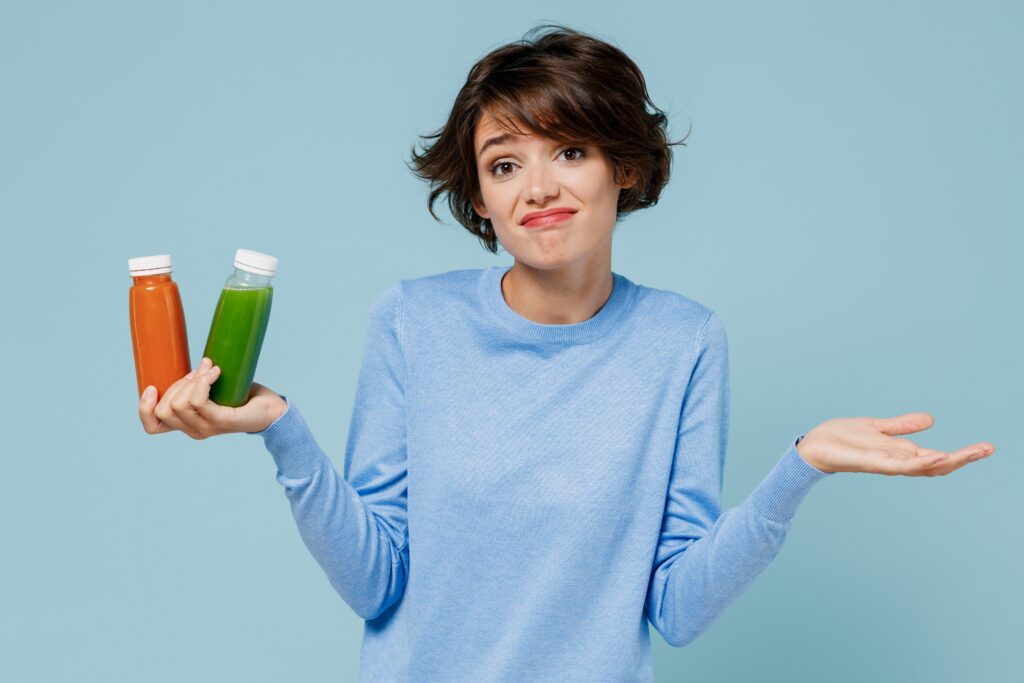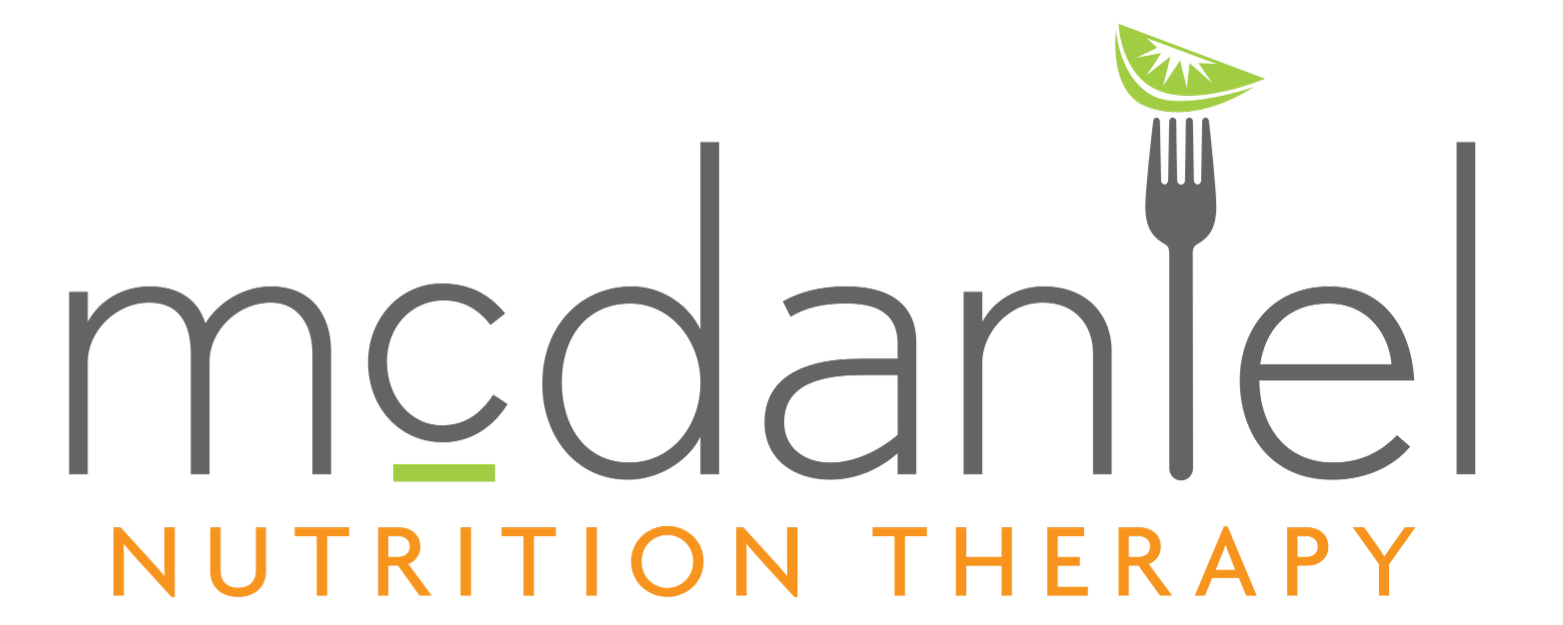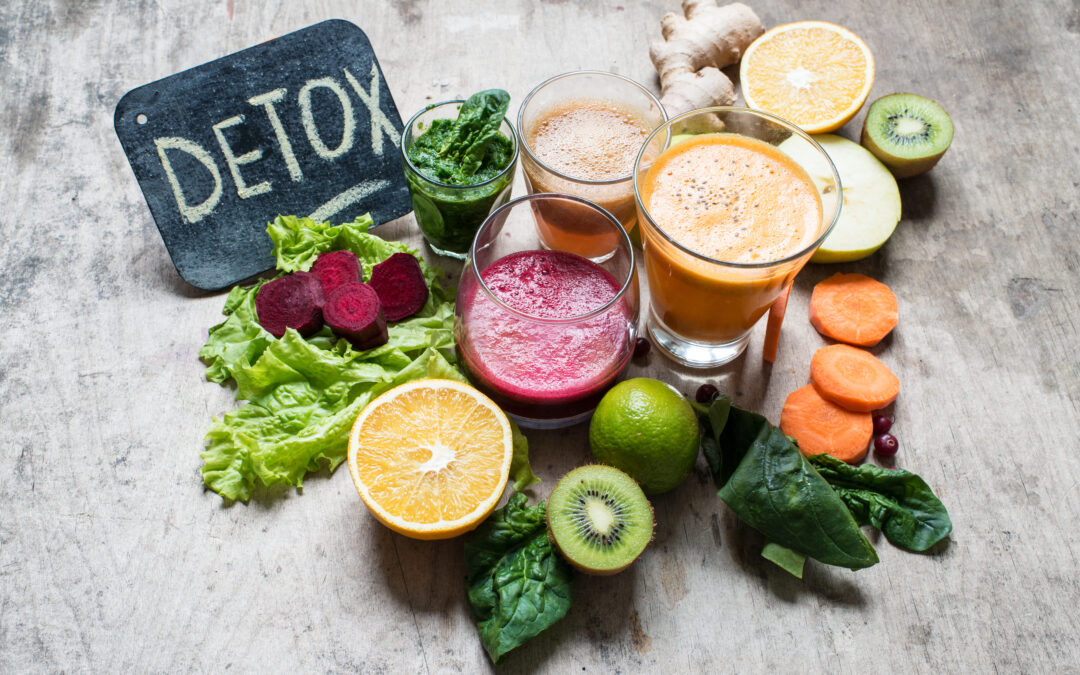Do You Need to Detox?
Detoxes and cleanses have been buzzwords for a while now. Regardless of what they’re called, they are always advertised with many health claims and compelling testimonials. A lot of the time—even when they don’t explicitly say so—“cleanse” is a code word for a calorie restricted, weight loss diet. Most of the research has used animals, so there isn’t good quality research on the effectiveness of detox diets and cleanses.
These advertisements don’t have a lot of information and leave a lot of questions unanswered. Do they really improve skin and digestion, boost the immune system, increase energy, reduce inflammation, or cure diseases? Are detox diets healthy? Do they help support your body’s natural detoxification systems?
What is detoxification?
Detoxification is your body’s own process for breaking down and eliminating toxins. We are exposed to toxins daily through food, water, and the air we breathe. Toxins include those naturally found in small quantities in the environment, and also synthetic toxins found in medicines, pesticides, and preservatives.
The good news is that your body does a great job breaking down toxins and eliminating them.
Because the world is full of toxins, we’ve evolved some pretty effective detox systems to keep our bodies healthy. Most of these systems are in the liver, but are also located in the kidneys and gut. These systems help to make toxins less dangerous and allow them to be excreted mostly through your pee and poop (also through breathing and sweating!).
What does any of this have to do with nutrition?
The body’s detox systems are made from biochemicals, like enzymes, in our bodies. Part of what makes enzymes work are key essential nutrients like vitamins and minerals from your diet. So, getting quality nutrition helps your body maintain all aspects of your health—including detoxification.
What are “detox diets” and “cleanses”?
Go online and you’ll find thousands of website pages and posts on these topics. There are so many different types of detox diets and cleanses being advertised. Many make bold promises of weight loss and improved health.
Detox diets and cleanses usually include at least one of the following:
- Eating more nutritious foods
- Reducing processed foods
- Avoiding alcohol and/or caffeine
- Eliminating some common allergens (e.g., wheat or dairy)
- Replacing meals with smoothies, juices, teas, or powders
- Short or long-term fasting
- Only eating/drinking a handful of recommended foods/beverages
- Taking several dietary supplements and/or laxatives
- Getting “colon cleanses” (enemas)
Some of these recommendations seem reasonable and healthy. It’s hard to argue that eating more nutritious foods or reducing processed foods isn’t a good step towards better health. However, some of the more extreme recommendations can be unhealthy or even dangerous.
You also have to be careful of eliminating too many foods from your diet because that also eliminates a lot of nutrients from your diet. Nutrient deficiencies are one of the long-term risks of extreme diets. And, in terms of detoxification, it’s counterintuitive to cut out too many foods because there are critical nutrients that your body needs for natural detoxification to work.

How to use nutrition to support your body’s natural detoxification
You probably don’t need to eliminate a long list of foods from your diet. Getting enough of your daily nutrients is what assures your detoxification systems are working well.
Here are some simple things you can do every day to “detox” yourself:
- Avoid obvious toxin exposure from tobacco and alcohol.
- Drink lots of water.
- Eat at least five servings of fruits and vegetables. These are great sources of vitamins, minerals, antioxidants, and dietary fiber. Try our favorite detoxifying green smoothie!
- Include a cruciferous vegetable like broccoli or Brussels sprouts. These contain compounds that help support detoxification pathways.
- Get enough dietary fiber by eating fruits and vegetables, whole grains, beans, legumes, nuts, and seeds. By promoting bowel regularity, these help to eliminate toxins from the body through your poop.
- Enjoy some naturally fermented foods like yogurt, kefir, kimchi, and sauerkraut. These promote digestive health and support your gut microbiome.
- Consume enough lean protein.
- Consult with a registered dietitian to see if you may be lacking in any key nutrients.
A Final Word about Detox Diets
Nutrition is a key aspect of detoxification. Your body’s own detoxification systems do a great job of clearing toxins on their own as long as your body is getting enough of the right nutrients. By getting enough of your essential vitamins and minerals, you’re supplying your detox enzymes what they need to work.
Detox diets or cleanses that you see advertised online oversell their abilities to improve health. There are almost no quality human studies showing benefits and there are no long-term studies. Before you start a detox diet or cleanse, talk to your doctor or a dietitian so you can make sure that you’re doing it safely.
——————-
References
British Dietetics Association. (2019, May). Detox Diets: Food Fact Sheet. Retrieved from https://www.bda.uk.com/resource/detox-diets.html
Cleveland Clinic. (2020, Jan 3). Are You Planning a Cleanse or Detox? Read This First. Retrieved from https://health.clevelandclinic.org/are-you-planning-a-cleanse-or-detox-read-this-first/
Eat Right. (2019, May). What’s the Deal with Detox Diets? Retrieved from https://www.eatright.org/health/weight-loss/fad-diets/whats-the-deal-with-detox-diets
Harvard Health. (2020, March 25). Harvard Health Ad Watch: What’s being cleansed in a detox cleanse? Retrieved from https://www.health.harvard.edu/blog/harvard-health-ad-watch-whats-being-cleansed-in-a-detox-cleanse-2020032519294
Johns Hopkins Medicine. (n.d.). Detoxing Your Liver: Fact Versus Fiction. Retrieved from https://www.hopkinsmedicine.org/health/wellness-and-prevention/detoxing-your-liver-fact-versus-fiction
Kesavarapu, K., Kang, M., Shin, J. J., & Rothstein, K. (2017). Yogi Detox Tea: A Potential Cause of Acute Liver Failure. Case reports in gastrointestinal medicine, 2017, 3540756. https://doi.org/10.1155/2017/3540756
https://www.ncbi.nlm.nih.gov/pmc/articles/PMC5674495/
Mayo Clinic Healthy Lifestyle. (2020, April 18). Do detox diets offer any health benefits? Retrieved from https://www.mayoclinic.org/healthy-lifestyle/nutrition-and-healthy-eating/expert-answers/detox-diets/faq-20058040
Medical News Today. (2019, March 11). What to know about the lemon detox diet. Retrieved from https://www.medicalnewstoday.com/articles/324670
NIH National Center for Complementary and Integrative Health. (2019, September). “Detoxes” and “Cleanses”: What You Need To Know. Retrieved from https://www.nccih.nih.gov/health/detoxes-and-cleanses-what-you-need-to-know
NIH ToxTown. (n.d.). Methanol. Retrieved from https://toxtown.nlm.nih.gov/chemicals-and-contaminants/methanol
NIH ToxTown. (n.d.). Sulfur dioxide. Retrieved from https://toxtown.nlm.nih.gov/chemicals-and-contaminants/sulfur-dioxide
NIH ToxTown. (n.d.). Toxicology 101. Retrieved from https://toxtown.nlm.nih.gov/key-concepts-and-glossary/toxicology-101

